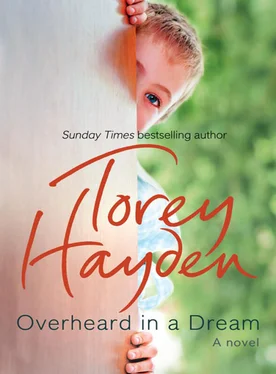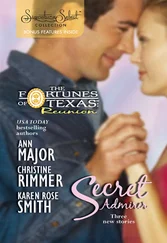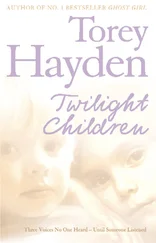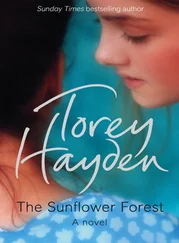“Anyway, that particular evening we’d had thundery showers in the late afternoon. When the clouds finally parted, the sun was left hanging just above this low, humpbacked mountain that everyone calls the Sugarloaf. I was walking directly into the sunlight and I recall looking up at it and wondering why it was that you could look directly at the sun when it is that low in the sky and it doesn’t hurt your eyes.
“Then just to my right, I caught motion in my peripheral vision, stopped, turned my head and found myself still sunblind. I couldn’t see clearly for a moment or two, but when I could, there was this woman standing there.”
Laura paused and drew in a deep breath.
“She was like no one I’d ever seen before. Not even in my dreams. She was in her twenties, tall, with broad, bold features and dusty-coloured skin. Her hair was a soft black colour like charcoal, thick and very, very straight. It hung loose just past her shoulders. This caught my attention straightaway, because this was in the early 60s, before the Flower Power generation, so women wore short Doris Day ’dos or Jackie Kennedy bouffants. If their hair was longer, it was done up in a chignon or French roll. I’d never seen a grown woman who had her hair loose and unstyled.
“The other really noticeable thing was her muscles. She was quite thin but she had these taut, prominent muscles. I remember thinking that if I reached out and touched her, her flesh would feel hard like my brother’s, not soft and mushy like Ma’s.
“More than anything else, though, the feature that defined her most was her eyes. They were deep-set, beneath dark, ungroomed eyebrows, and they were the most extraordinary colour. A light, light grey that towards the edges of the iris was vaguely yellowed, like the eyes of a wolf.
“All her clothes were creamy white. The top was loose and blousy and had an elaborate design embroidered down the front and on the cuffs, but the embroidery was white on white, so you couldn’t actually tell what it was without looking closely. Her pants were like these baggy shorts boys wear now that end just below the knees, but they were made of the same white woven material as her top. On her feet she was wearing Roman-style sandals, the kind that lace up over the ankles.
“I remember staring at her because she looked so strange. And also because she looked really very beautiful in a wild sort of way. She stared right back at me. Not discreetly, the way adults usually look at people they’d interested in. She stared . The way young kids stare at each other. She had this bewildered expression on her face, as if she were as startled to see me there trotting along the path through Adler’s vacant lot as I was to see her.
“That moment of staring felt like forever to me. We just stood, locked in one another’s gaze. I wasn’t frightened of her at all. If anything, I felt a wary excitement.
“Finally she turned away and started moving towards the corner of the lot. There wasn’t a way out onto the street there. Just an old, untended lilac hedge. The lilacs were tall and scraggly but even so, you still couldn’t get through them. I never bothered to wonder why she was going that way. All I knew was that she was getting away and I couldn’t let that happen. I had to follow her. So I did.”
Laura stopped.
James raised his eyebrows. “And?”
“My next memory was of getting hit by crab apples that my foster brother was throwing. When I looked around, I was standing in the alley at the other end of the path. Over by the gate into our backyard. This was more than half a block away from where I’d seen the woman.
“I remember looking down and seeing the knee-deep weeds in the alley, seeing their colour. They were that pale yellow everything goes when it is baked dry in the summer heat, and there was hard, rutted soil beneath them. For a moment I wondered if this woman had magicked me there because it was quite a way away from the path through the empty lot. I was seven and still hopeful about things like fairies and magic. But I wasn’t a naïve kid. I think I already knew by then that those things didn’t really exist. I was also experienced enough with my imagination to know that it did. This wouldn’t have been the first time I’d become so engrossed in playing an imaginary game that I’d lost track of where I was and ended up somewhere else.”
“So you recognized seeing this woman as an imaginary experience?” James asked.
“Oh yes. Definitely yes. I’m not talking about aliens or the paranormal or anything like that. I imagined her. Real as she looked to me in Adler’s lot, I knew even then that if I’d reached my hand out, I could never have touched her. I knew she had come from inside me.”
“So what do you think happened to you during that period between seeing her and your ending up at the gate into your backyard?” James asked.
“Simple. I’d followed her. I walked into another world that evening,” Laura said quietly. “A world inside my head. Nowhere else and I knew it was nowhere else. But it was another world, nonetheless, and no less real for being in there instead of out here. I experienced it with immense clarity. As vividly, as vibrantly as I can see this room around us right now.”
She looked directly at James. “Does that sound crazy?”
James smiled gently. “No, not crazy. Many children are gifted with astonishing imaginations and can create some very detailed fantasies.”
“It was astonishing all right. But it proved to be much more than a child’s fantasy because it didn’t end there with my childhood. That’s why it’s so hard to talk about. Because there is a type of craziness about it and I do know that.” She studied her fingers a moment. “But I also need to tell you about it. Because that night on the path through Adler’s lot has influenced everything that’s ever happened to me since.”
This had not been what James had been expecting at all. Fascinated, he leaned forward towards her. “Fantasy tends to be a reflection of our lives, of needs that aren’t being fulfilled, of desires we have,” he said. “I’d be very interested to hear what your childhood was like at that point.”
Laura grew thoughtful for a moment. “Most people stereotype my childhood straightaway when they hear that I was a foster child,” she said at last. “They assume it must have been unsettled and full of traumatic events. The truth is, for the most part, it was actually quite a good childhood. I was happy.
“I only ever lived with one family. I had been with them since I was only a few weeks old, so it always did feel like my family. My foster parents had four sons of their own, all older than me, so I was the daughter they’d never had and I felt very cherished. Mecks was their name. I called them Ma and Pa and they always treated me as if I were their own child. I was well loved and knew it.”
“How did you come to be in foster care?” James asked.
“My mother developed an embolism and died only two days after I was born. I was a bit of an accident anyway, as my two brothers are eight and ten years older than I am. This was not an era when men were very domestic. My father felt he could cope with two school-aged boys but not with a tiny baby. So, I went to the Meckses very early on.”
Laura grew pensive. “In many ways it was an idyllic life for an imaginative child. I was essentially a last-born child, which meant I was spoilt a bit, given my way, left largely free of expectations. And it was an amazing environment to grow up in. The Meckses had this huge, old, turn-of-the-century house with a big staircase in the front hall and a banister you could slide down, just like kids do in the movies. Everybody in town called it ‘the lake house’ because it was built right at the very end of Kenally Street and so backed onto Spearfish Lake. We even had our own bit of shoreline. Thinking back on it now, I suspect the house wasn’t as grand as I remember it. In fact, it was probably downright shabby by adult standards, because there was a lot of peeling paint, stained wallpaper and squeaky floorboards by that point. But it was a kid’s paradise.
Читать дальше












